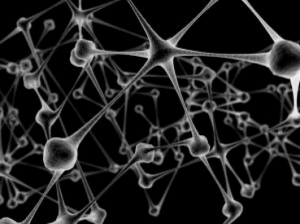If you’re checking in for wedding news, please be patient. As soon as I get through the post-wedding pile up, you’ll get the skinny. In the meantime, maybe you’ll enjoy this post about aging brains. I’ve been saving it for a busy day like this, and being rather tired, my brain is feeling its age, too.
In a recent blog post, I mentioned a study of teen brains which motivated me to reroute my morning walks to avoid teen drivers. Of course, another choice would have been to stop walking daily. But information in a second NPR news report on aging brains nipped that idea in the bud.
Brain researcher Gary Small shared this old fogey bad news first: “Reaction time is slower,” he says. “It takes us longer to learn new information. Sometimes it takes us longer to retrieve information, so we have that tip-of-the-tongue phenomenon — where you almost have that word or that thought. That’s typical of the middle-age brain.”
Well, I was despondent upon hearing such an accurate description of my brain, but then Small shared the good news that there is “continued improvement in complex reasoning skills as we enter middle age…This increase may be due to a process in the brain called ‘myelination.’ Myelin is the insulation wrapped around brain cells that increases their conductivity — the speed with which information travels from brain cell to brain cell. And the myelination doesn’t reach its peak until middle age. By this point, says Small, ‘the neuro-circuits fire more rapidly, as if you’re going from dial-up to DSL.’ Complex reasoning skills improve, and we’re able to anticipate problems and reason things out better than when we were young.”
With those words, I preened a bit. After all, myelin was the stuff teen brains lacked, but middle-agers like me have plenty of the stuff. And, Small added, older people have more empathy than teens.
But his next words kept my head from swelling too much. To keep middle-aged brains growing, studies show that learning new skills is important. Another study by brain researcher, neuroscientist Art Kramer, from the University of Illinois, found that memory can improve with treadmill workouts. “Over a six-month to one-year period,” Kramer says, “three days a week, working up to an hour a day, people improved in various aspects of both short-term and long-term memory.”
So there it is. Daily walks aren’t just good for the body, they’re good for the brain, too. There’s no wiggling my way out of them now. How can I with examples like Small and Kramer? At the end of the radio report the reporter described their daily exercise routines: “Kramer, 56, goes to the gym four or five days a week, getting aerobic exercise on a stationary bike and strength training by lifting weights. Small, 58, does a New York Times crossword and numbers puzzle every morning, as well as a series of toning and stretching exercises and at least 20 minutes of aerobic exercise each day.”
Sigh. Time to take this aging brain on another walk.


